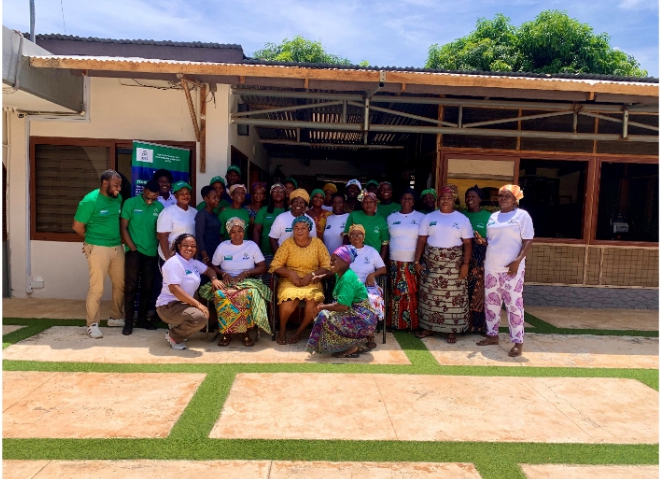By Evans Worlanyo Ameamu
Keta (VR), May 30, GNA-Some women along the coastal belt of the Volta Region have received training from Women’s Voices in Coastal Climate Adaptations (WOVCCA-RFPR) and Institute of Climate and Environmental Governance on swift actions to adopt in addressing the divergence climate crisis.
The training was part of the Women’s Voices in Coastal Climate Adaptation (WOVCCA-RFPR) project, led by the Institute of Climate and Environmental Governance (ICEG) with support from the Gender & Environmental Data Alliance (GEDA).
Mr. Khiddir Iddris, the Project Leader, in an interview with the Ghana News Agency, at workshop, held at Villa Amore hotel in at Keta, said the exercise brought together women from Anloga, Kedzi, Kedzikorpe among others who participated and shared, suggestion about climate change during the programme.
“The participants included traders, fish processors, farmers, youth, and elderly residents who were equipped with coastal adaptation plans aimed at addressing pressing environmental challenges,” he said.
He expressed excitement about how many participating women shared their experiences about the devastating tidal wave incursions, disappearing fish stocks, and salinisation of farmlands.
Mr. Iddris explained that other objective of the WOVCCA-RFPR project was to address and eliminate the gap in gender inclusion in climate decision-making and stressed that, “the women are not just victims but have ideas and need support to bring them to life.”
He said that the workshop concluded with a shared resolution that would turn the community recommendations into actionable plans and ICEG pledged to escalate the feedback to municipal assemblies, national stakeholders, and development partners for urgent follow-up.
“We are encouraging women in coastal resilience efforts and leadership that is essential in addressing the climate crisis for their voices to be heard,” Mr. Iddris said
Madam Fredericka Tay, a Fishmonger in Anloga, who also took part in the training highlighted the economic tolls, adding that, “we face a lot of difficulties in getting fish to run our fishing business, and we are pleading that urgent action is taken to address both climate and manmade challenges.”
She suggested concrete policies which include investment in cold store facilities, agro-processing centers, as well as implementing urgent stricter regulations by authorities against illegal sand winning to prevent acceleration of coastal erosion.
Some other participants GNA spoke to called for urgent support including access to capital, storage facilities among others that would improve their livelihoods.
They said that the immediate priority target should be intervention projects that would be necessary to safeguard their communities, livelihoods, and future, and advocated for initiatives plans such as tomato processing plants and parenting programmes that would build children’s resilience.
The workshop marked a crucial step towards turning dialogue into action and the participants’ recommendations and feedback will inform the development of gender-sensitive climate solutions and adaptation planning in future.
The training on swift action about climate crisis for coastal women was seen as a significant step towards addressing the climate crisis in the municipalities along the coast and the WOVCCA-RFPR project’s focus on gender inclusion and women’s leadership would help ensure that the community’s needs are met and their resilience is strengthened.
GNA
Edited by: Maxwell Awumah/Benjamin Mensah
